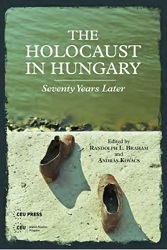
We kindly inform you that, as long as the subject affiliation of our 300.000+ articles is in progress, you might get unsufficient or no results on your third level or second level search. In this case, please broaden your search criteria.


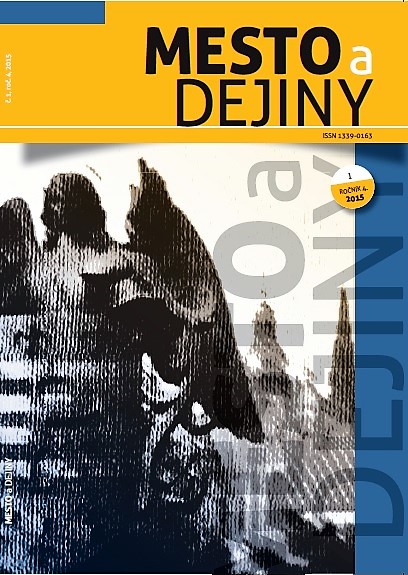
The paper deals with complex problems in addressing the adverse housing situation of the Roma population in Košice. After World War II, part of the city known as the gypsy camp under Moldavská way found itself in an extremely exposed position at the entrance to the city. Arrival the amount of working class from rural areas with extensive construction and urbanization ratios further deepen. Numerous Roma growth was evident. Housing problems are addressed through an allocation of older apartments, phasing out the huts in the camp and fi nally focusing on specifi c Roma settlement. The idea of a separate settlement originated in the mid-60s, in 1970, the planned housing units was not built. Another intention of anticipated settlement was in the area Myslava with lower standard family houses. Because of the high costs the concept of prefabricated houses gallery type was born. The government in 1976 refused to deal with Roma housing in specifi c neighbourhoods. Council city national committee nevertheless approved the construction of Luník IX without a specifi c focus. The construction was carried out in late 1970s, several policies were processed recall procedure Roma families from the camp as well as the old city, according to various streets. In 1981 began the history of Luník IX, its ethnic ghettoization with disastrous consequences to the present.
More...

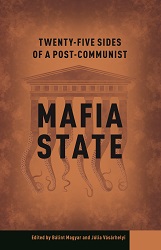

The emerging post-communist criminal states, where the governance bears the features of a criminal organization, can be described as post-communist mafia states. It is nothing less than the privatized form of a parasite state. In this case, the central bodies of the state itself operate in concert as a criminal organization, as the organized upper world.
More...
All attempts to uncover the true wealth of the Orbán family and the origin of this wealth have so far ended with an embarrassing lack of success—whether it be the activity of a parliamentary inquiry commission in 2005 or an audit by the national tax authority two years later.
More...
The conceptual apparatus of the mafia state desires to attain a circumstance when not only “ordinary” corruption dominates the government, and not“simply” the occurrence of state capture has to be taken into account. The essence of the “octopus” is political and economic power that builds onto and within itself. It is not an external interest group that puts the management of the state under its control, but a coterie that acquires it “directly,”with the goal of mobilizing the complete array of assets of the state, from financial resources to legislation, for its private benefit. In this world of legalized corruption, the far-reaching and unquestionable supremacy of the central government takes precedence over the rule of law.
More...
The author is trying to prove that although the economic crisis resulted in the polarization of inequality almost everywhere, the dramatic growth of the income gap in Hungary happened differently there than in other countries.
More...
The four-year term of the second Orbán government has ended (Viktor Orbán was prime minister between 1998 and 2002 for the first time, then between 2010 and 2014 for the second time), and following a dominating win in the elections, Orbán’s government can again start the command of a new four-year term with a two-thirds majority in parliament. It is about time for a multifaceted analysis and evaluation of how the Orbán regime operated, what it did, and what it achieved over the last four years.
More...
In December 2005, Viktor Orbán participated in an Advent conversation with Béla Balás, bishop of Kaposvár and Zoltán Balog, a Calvinist pastor (today Minister of Human Resources), where he talked about his own faith, his commitment to Christianity, his political mission, and also touched on topics like the fear of God, religious life, the relationship between government and Church, and the Church as an absolute standard of values, revealing to the audience his ars poetica as a politician and a leader.
More...
History has witnessed many revolts of serfs but never a revolt of the farm servants of large agricultural estates. Serfs, whether faring better or worse, were in charge, within certain limits, of their lives on their own lot. Farm servants, on the other hand, owned nothing at all. Even though provided with accommodation and shelter, they had no control over their lives since they were dependent on their landlords’ humanity for their well being.Serfs had the incentive to produce more so as to keep more. If their landlords tightened the rope around their necks, they had the consciousness to rebel. Servants, in contrast, received no more than their food and lodging, however hard they worked. Their resistance did not manifest itself in revolts but in sly individual acts such as punching the ox in the nose to slow it down in the furrows in order to make the work less exerting. At other times, they underhandedly spat or urinated into the landlord’s dish as a way of releasing their frustration. They cheated and thieved whenever they could to squeeze out just a bit more for themselves.
More...
The mafia state employs a multistep domestication methodology. Its first step is the centralization of funding and its control by a procurator. This move is “successful” with the majority of civil groups since they are primarily invested in realizing a given organizational goal rather taking a political stand. Therefore, in accepting the procurator’s response—funding or the promise of it in case of wait lists—they would not voice their discontent with this operational system. If the constrained funding does not suffice to reach its goal, the state deploys the media by, for instance, subjecting the oppositionally oriented civil society actors to communicational pressure. On this level all but those organizations would persist which, of the threefold task of civil society (participation, service, and control) would advocate the ethos of curbing the state’s dominance. Should the communicational pressure prove ineffective, the state will employ coercive means in order to enforce the government’s will, as exemplified by the intervention of the government’s Control Office and the police in the conflict with the NCTA. While the first method has been used more than a few times in the context of the Hungary’s incompletely realized democratic model, the second method’s application has been almost unprecedented. Finally, the deployment of central authority reveals how the octopus, an unequivocally nondemocratic system, works.
More...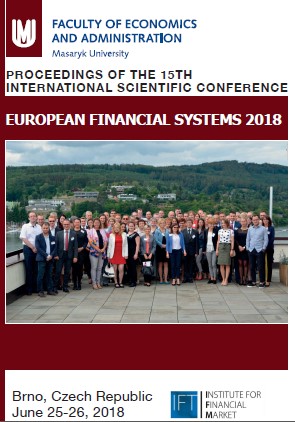
This paper aims to show the importance of one part of financial literacy that causes most problems in the Czech Republic. According to the latest data, there is quite a lot of Czech overindebted – they borrowed too much money, lost jobs, found a very inconvenient loan, etc. Those people were not able to analyze their financial situation in the broad context of having a loan. As we know from the start of last big financial crisis risky loans (e.g., Mortgages) can cause a worldwide problem. In general people with lower levels of debt, literacy tends to transact in high-cost manners, incurring higher fees and using high-cost borrowing. Due to the New Consumer Credit Act from 2016, there was expected a change in the loan amounts and risk. It is too early to judge the impact of that act, but we can see a basic tendency that shows us people are still willing to go in debts. This makes debt literacy still very important as there are many overindebted people in the Czech Republic.
More...
The aim of the article is to monitor and to analyze value and types of loans in the Czech Republic as a source of financing for business entities. The first section focused on statement of problem briefly describes the situation on the loan market. Main part is focused on results that analyzes the development of provided loans to entrepreneurial subjects in the Czech Republic. Interest is focused on the value of loans in the Czech currency and in foreign currency. Values and ratios of both sources of financing are compared in the article. Subsequently, the value of loans according to type of loan are analyzed. Data from the Czech National Bank were used to process the article. The results are clearly presented in processed graphs. Results show that entrepreneurs have used in the biggest value long-term loans instead short-term and medium-term loans to finance liabilities in recent years. Even in the context of increased foreign trade, the share of foreign currency financing is growing. Medium term loans have from 2010 the biggest ratio between Czech and medium currencies.
More...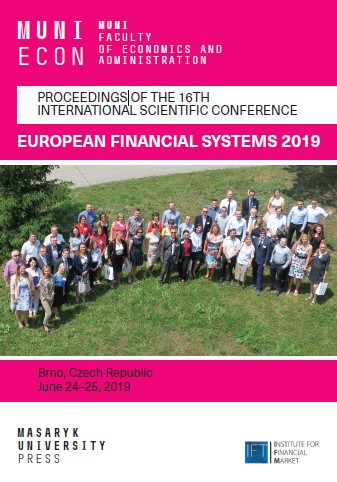
This paper shall compare insurance portfolios in selected insurance companies operating in the Czech Republic based on the growth rate of premiums written and the expense ratio. It shall compare these insurance companies: ČSOB Pojišťovna, Komerční pojišťovna, Kooperativa pojišťovna, Pojišťovna České spořitelny and Česká podnikatelská pojišťovna. ČSOB Pojišťovna and Komerční pojišťovna were selected because they are subjects with a developed bancassurance model and because the previous research suggested that insurance companies applying this model achieve a lower expense ratio. Kooperativa pojišťovna, Česká podnikatelská pojišťovna and Pojišťovna České spořitelny were selected because they are members of the insurance group VIG in the Czech Republic and the group has cooperated with the Erste Group Bank since 2008 based on their Strategic Cooperation Agreement. The aim of this paper is to determine whether or not the selected insurance companies and the group VIG achieve lower expense ratio of the insurance portfolio than what is the average of the expense ratio of insurance portfolios on the Czech insurance market. The paper shall compare the expense ratio of selected commercial insurance companies and the average of the expense ratio on the Czech insurance market in the 2010-2017 period. The research confirms that ČSOB Pojišťovna and Komerční pojišťovna reach lower values of expense ratio in life insurance. The insurance companies belonging to the VIG group (with the exception of Česká podnikatelská pojišťovna) reach lower values of ER in life insurance than the overall insurance market on average.
More...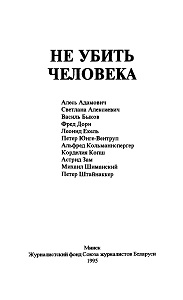

The purpose of the research is to outline the specifics of Bulgarian gardeners and Bulgarian horticulture in Budapest in the first quarter of the 21 century by means of two examples.Methods of observation, biographical approach, and free and semi-structured interviews are applied. The relationship between Bulgarian horticulture and cultural heritage is analyzed.The study is the result of the author’s participation in a project “Migrations. Modernities, and Intercultural Mediation – Bulgarian Immigrant Groups to Hungary in late 19th and early 20th c. and their Impact on the Social and Cultural Life of the Host Society”.
More...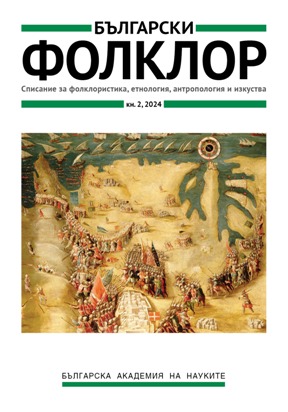
The article examines, from a historical and contemporary perspective, the processes of valorizing diaspora gardening as local heritage in two significant "gardener villages": Polikraishte and Draganovo (within the municipality of Gorna Oryahovitsa). Based on field research conducted in Bulgaria and Hungary, the publication investigates how diaspora gardening becomes part of the local festivities and commemorative practices. The article traces how transnational gardening, while practiced as a local livelihood, is connected to traditional festivities and examines the changes in the local dimensions of the festive calendar during socialism and more recently. A separate section is dedicated to the new festivity (its emergence, development, and messages) as a current means of transforming local livelihood into cultural memory and the local heritage of the two settlements.
More...